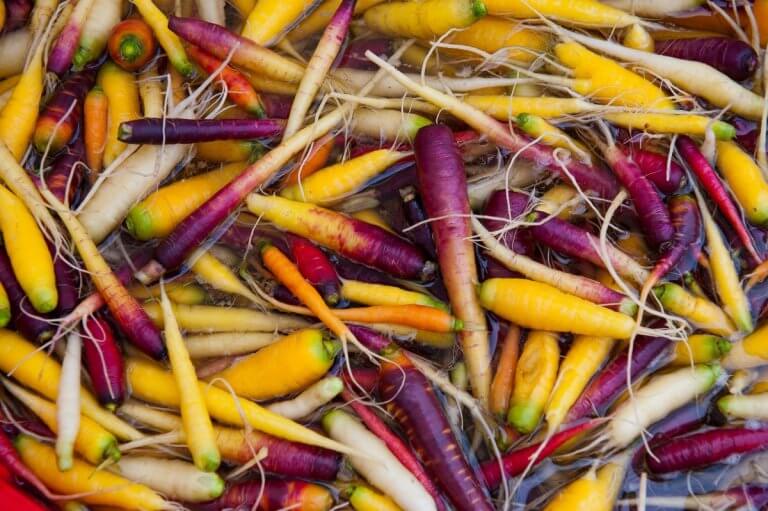
Food. It’s central to the human experience, impacting our health, culture and environment. To study something this complex – and to fix what’s broken about the way we feed ourselves and the world – you have to come at it from all angles.
Where better to do that than a campus that leads the way on an integrated and systemic approach to understanding food?
The University of Vermont (UVM) was the first to offer bachelor’s, master’s, and Ph.D. programs in Food Systems, a transdisciplinary field of study aimed at making our food more healthy, sustainable and just – from its production and growth, to its packaging and distribution, to its consumption and disposal.
UVM’s Food Systems faculty span the disciplines, from animal science and nutrition, to economics and business, anthropology to philosophy. It will take effort and expertise across these areas to make real change in global food systems, and this collaborative approach to research and teaching is a hallmark of the UVM education experience.
And it has led to a number of important discoveries, as reported by both the national and international media. UVM researchers are looking at how agriculture is affected by climate change, from hungrier insects eating more crops to the genetic limitations of chickpeas. This culture of research extends to the graduate student experience, with one doctoral student discovering the benefit of wild bees on berry farms, and a master’s student exploring how the Canadian treat, poutine, is a victim of cultural appropriation.

University of Vermont
Such activities are global in scope. Caitlin Morgan, Ph.D. student in food systems, traveled to Denmark to investigate the country’s approach to food education. It’s “a different way of teaching kids about food than we usually undertake in the US,” she says, one with a “focus on sensory engagement and pleasure.”
And Jorge Ruiz-Arocho, PhD student in plant and social science is working in Mexico on a first-of-its-kind study comparing agrobiodiversity between wild species and cultivated crops. “Mexico is the region of origin of many crops – like corn, beans, squash and chili – that are the base of our modern food system,” says his mentor, Professor Yolanda Chen.
Back in Vermont, students who are passionate about food find an ideal home. A state with a rich agricultural history, Vermont’s name is synonymous with high-quality food products known around the world, from ice cream and craft beer, to maple syrup and artisan cheese.
UVM’s hometown city, Burlington, is a perennial favorite on rankings of top destinations for food lovers, with its abundance of farm-to-table restaurants. Much of Burlington’s produce is grown right in the city, on 360 acres of riverside farmland that’s been managed since 1988 by a non-profit dedicated to supporting community agriculture.
In the field
Close university connections with this network of non-profits, farms, food producers, and businesses provide real-world learning laboratories for students of all levels. For example, at nearby Bread and Butter Farm, teams of plant and soil science students are helping farmers answer a key business question: how are current land management techniques impacting soil depth and animal health? Fellows who lead these teams include doctoral students and researchers.
“It’s learning by teaching,” says environmental studies student Nell Carpenter. “It’s a really incredible way to be steeped in this, as opposed to just having stacks of books on my conference table.”

The University of Vermont
This ethos extends to a new program offered at UVM: a Certificate of Graduate Study in Agroecology. Its curriculum is transdisciplinary, participatory and action-oriented and centers around the idea that agricultural land should be viewed as an ecosystem, and the people who work the land as part of a social fabric – both deserve respect and care.
This 15-credit program can be completed in one year, and because of its low-residency, hybrid design, certificate students can live in their own food shed while learning lessons that can be applied anywhere.
Read more about the research discoveries fueled by UVM’s innovative, collaborative approach to studying food.
Follow UVM on Facebook, Twitter, YouTube, Flickr, Snapchat, Instagram and LinkedIn
Liked this? Then you’ll love…
University of Vermont: A day in the life
The University of Vermont through the eyes of international students







